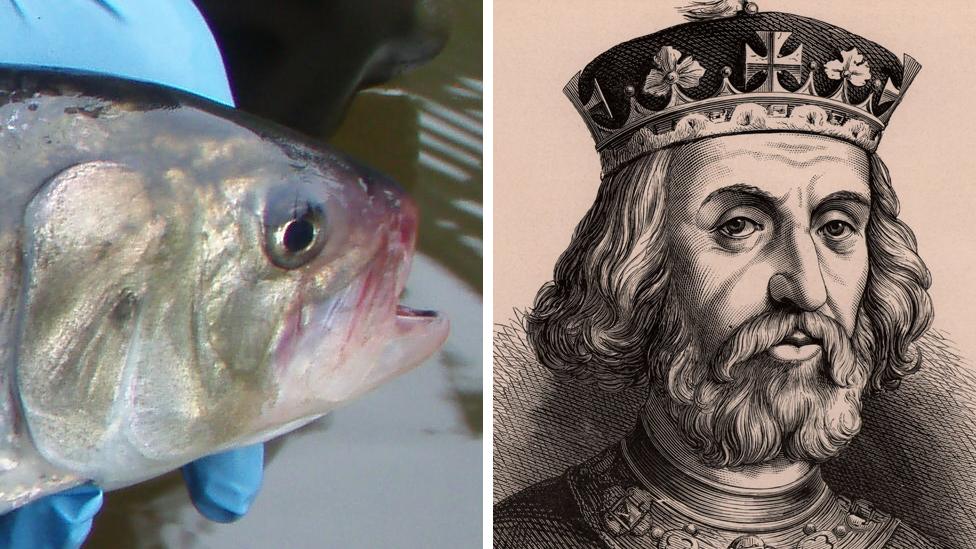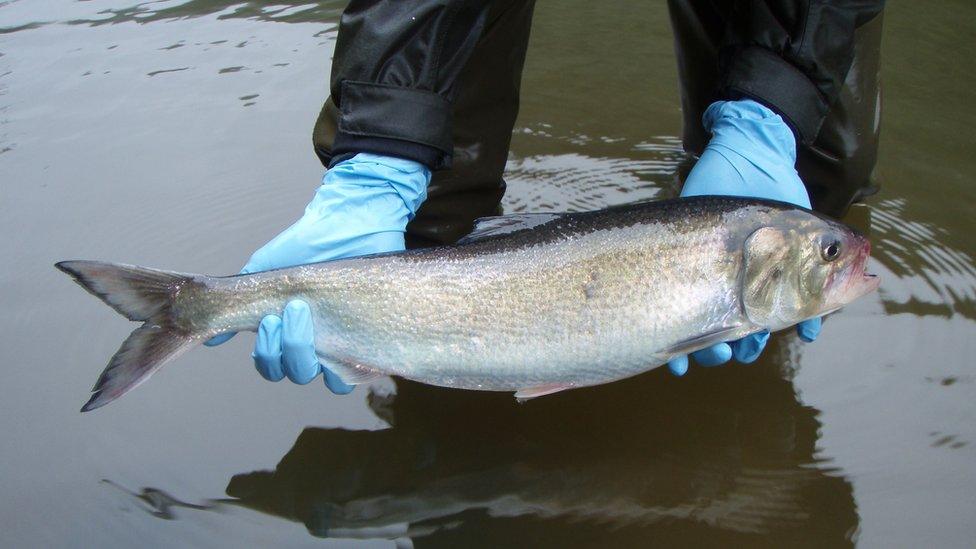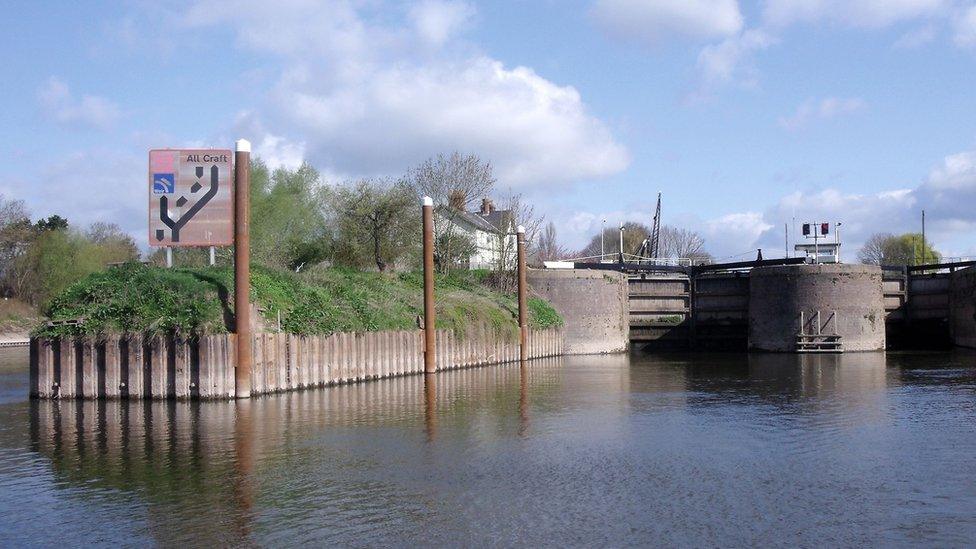King's favourite fish to make comeback in River Severn project
- Published

Shad are said to have been favoured in the court of Henry III
A scheme that aims to re-establish one of King Henry III's favourite fish in the River Severn has been given nearly £20m in funding.
It will reopen the river to fish species, many of which vanished after weirs were installed in the 1800s.
Fish passes will be installed at weirs on the river in Worcestershire and Gloucestershire.
It will allow threatened shad to access their historic spawning grounds in the upper reaches of the river.
Twaite shad and allis shad are said to have been favoured in the court of Henry III in the 13th Century, and were once abundant and famed across Europe for their taste and quality.

Shad and other species disappeared from the upper Severn after weirs were installed in the 19th Century
The Bristol Channel, into which the Severn flows, has the only viable breeding population of twaite shad in the UK.
Richard Parry, from the Canal and River Trust, said it would help "restore this important fish stock to the upper River Severn".
Heritage Lottery Fund trustee Tom Tew said: "Unlocking the Severn is a very rare opportunity to right 150 years of wrongs.
"It will save a wonderful, but endangered, migratory fish and hugely benefit the River Severn's wider environmental health."

England's only fish viewing gallery will be installed at Diglis Weir in Worcester
The £19.4m project will install four fish passes, which allow fish to travel past the blockages, in Worcestershire, open up the River Teme to fish at two locations near Worcester, and improve access at a weir on the Severn near Tewkesbury.
It will also see England's only fish viewing gallery built at Diglis Weir in Worcester, and the UK's first "Shad Fest" will take place.
Work will begin next year and the whole project, which will also benefit salmon and eel, is expected to take five years to complete.
The scheme, which is the largest of its kind ever attempted in Europe, was developed jointly by the Severn Rivers Trust, the Canal and River Trust, the Environment Agency and Natural England.
Funding includes £10.8m from the Heritage Lottery Fund and £6m from the European Commission.